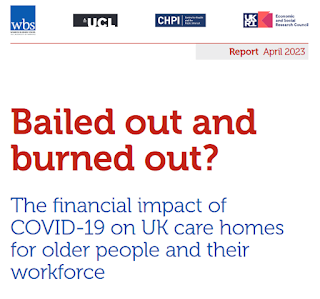Moidel, H.C., Giblin, E.C., Wagner, B.M. (Eds) (1976) Nursing care of the patient with medical-surgical disorders. New York: McGraw-Hill, ISBN 10: 0070426554 / ISBN 13: 9780070426559
"The process of nursing assessment is a deliberate and systematic analysis of the patient and his environment with the purpose of gathering data about the patient's health-illness status and resources. A systematic and recorded assessment also provides (1) a baseline measure for identifying change over a period of time; (2) a foundation for the nursing-care plan, giving direction to nursing interventions; (3) a means for evaluating the effectiveness of nursing care." p.8.
"The nurse's major tools for obtaining data regarding a patient's health-illness status and resources include communication (with the patient, his family, health team, and nursing-team members), direct observation and examination (through the use of all sensory channels and technological adjuncts), consultation, and review of the literature. The use of these tools, which is amplified in chap. 7, should be in accordance with some organized, systematic, valid, and reliable framework." p.9.
The need for systematic and deliberative approach remains, despite the passing decades. Whatever 'system' is adopted it needs, as per 1-3 to be dynamic, act as a substrate; that is also neutral - non-prescriptive (apart from); facilitating the flow of assessment, planning, interventions and evaluations, and what used to measure effectiveness, outcomes, quality and safety. As an American text, chapter 7 is also concerned with 'nursing diagnosis' and Orem is referenced.
 |
Nursing care of the patient
with medical-surgical disorders
|
Nursing Management
"Nursing management is based upon and follows assessment. It is the process of determining and initiating goal-directed nursing action in relation to the patient problems diagnosed during assessment. Without assessment, nursing management becomes mechanical, dependent on physician's orders, and detached from the ultimate goal of wholeness for the patient." p.9.
We still need balance in humanistic-mechanistic care delivery. Paying attention and due regard to the interpersonal detail and needs, while also seeing the whole.
"Delong studied the impact of preoperative information on recovery from surgery. In general, individuals who were given specific detailed information regarding the surgery and postoperative care had a less complicated recovery and were discharged earlier than those who received general nonspecific information. When coping styles were considered, it was found that those who exhibited flexible patterns of coping with general stress in their lives recovered well regardless of the type of information they received. Copers, who were defined as individuals who seek out information regarding potential threat, recovered better if they were given specific information before surgery. Avoiders typically showed slow, complicated recoveries, regardless of specific or nonspecific information; however, those who received specific information had more postoperative complications than those who heard only the general information." pp.38-39.
Now in healthcare, we are concerned with Health Information for All, and Health Literacy. I wonder what the informational nuances are in 2023 bio-psycho-socio-politically: and of course spiritually?
"All the disease and illness concepts cited above have reshaped society's thinking and practices about health, maintenance of health, and treatment of disease when it appears. But each emphasizes specific aspects of the totality of interwoven dynamics that constitute disease and illness, leaving us with cumbersome vocabularies and classifications that are partial and imprecise. Theoreticians, endowed as they are with a sense of order and logic, will most assuredly seek to bring the various viewpoints together into new conceptual frameworks." p.51.
Now our 'new' conceptual frameworks must incorporate nursing, patient-nurse relationship, the 'team', society, research and evidence-based care, policy - local, national, and global, plus technical and climate change all amid the politics of health and the informational milieu - or melee?
Also of note (Chap. 1):
Section headings: Care as a Nursing Function, with Cure, and Coordination as Nursing Functions.
Ecologic Orientation, Part 2.
Individual differences in patterns of anxiety arousal, stress-relevant information and recovery from surgery. Delong, R. D., University of California, Los Angeles ProQuest Dissertations Publishing, 1970. 7116307. https://www.proquest.com/openview/0d64def524b9e5845b7e168aa4cc5876
<>
As I continue to sort through 'old' books and papers, on Earth Day we are (duty) bound to reflect on the future. As my grandson was on the post-school play ground this week, I noticed the infants and those at risk of walking into the merry-go-round. I wondered whether in their senior years, will the ice be returning, the sea-levels stabilise, and will the CO2 in the atmosphere be reducing?
What of - Nursing care in 2076? We need a conceptual framework that can project the care of the past and now, into the future. For those who are not yet here.
Previously:
'Planetary Health'
Gaia
'climate change', 'ecology' . . .














 orcid.org/0000-0002-0192-8965
orcid.org/0000-0002-0192-8965